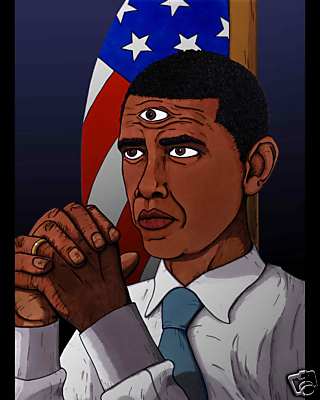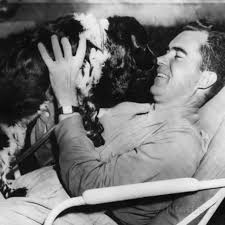The Return of Flag Politics
Friday, June 24th, 2005A flag was burnt last year. Or so say the Citizens Flag Alliance, the watch-group that pays attention to these things. I’m sure there may have been, within the safe confines of somebody’s homes but in public view of everyone, more burnings of the flag, but I can count reported cases of public burning of the flag on American soil on one hand with my hand being a stump.
It’s the great American wedge issue. All of flag politics are. Michael Dukakis was tripped up by the flag — the Pledge of Allegiance to be more precise. In his case the signature of “against the Pledge of Allegiance” was a strike for religious freedom [most especially Jehovah’s Witnesses] — a cause the Religious Right never really seems able to get behind accepting supposed afronts against mainline Protestant denominations.
I’m not terribly interested in burning the flag. It’s a strange act designed so the perpetrator can wallow in their marginality. As George Carlin said, “I consider them symbols, and I leave symbols to the symbol minded” — which works as well for the flag burner as someone with a “These Colors don’t run” bumper sticker.
“It’s not the threat to free speech that they say it is… what are the dear flag burners of America to do?”
It’s probably more a threat to the rights of free speech than is the margins of pornography. And I believe the real problem, for me, is a sort of stratification of our civic religion, the flag being the equivalent of — I don’t know — the rosarie, or better yet the object that is the Quaran. “Thou shall not burn the American flag.” To make laws with regard the flag on what you cannot do with it is to make into law what you are required to do with it.
In the name of Patriotism.
And who gets to define “Patriotism”? Probably the most boisterous.
Karl Rove saideth: Conservatives saw the savagery of 9/11 and the attacks and prepared for war; liberals saw the savagery of the 9/11 attacks and wanted to prepare indictments and offer therapy and understanding for our attackers. He cited moveon.org as his example… which, I guess has some odd validity to. I’ll get back to Karl Rove in a minute.
Better example may be Bill O’Rielly. Everybody got it? Dissent, fine; undermining, you’re a traitor. Got it? So, all those clowns over at the liberal radio network, we could incarcerate them immediately. Will you have that done, please? Send over the FBI and just put them in chains, because they, you know, they’re undermining everything and they don’t care, couldn’t care less.
A curious statement, and I’m sort of stuck parsing out what the heck “dissent” is and what the heck “undermining”. Is “Undermining” dissent when it actually affects public opinion on matters? Dissent being ineffectual undermining, — which he is aokay with. (Except, of course, he isn’t… as can be seen with his demonization of Jeremy Glick — his mind being completely unable to wrap his head around the thought that in all of thousands who died at the WTC, someone might be a pacifist and someone might have a pacifist son.) Actually, it’s hard to see Bill O’Rielly’s words as being anything but part of the feud with Al Franken — a feud he’s getting his butt kicked in largely by default due to his remarkable thin skin.
Who the heck is this that is defining acceptable (and even more strikingly — legal) discourse here — and to what agenda?
You will note the difference between the fallout of Karl Rove’s statements to those of Dick Durbin’s. Roves stands behind his words; Scott McClellum says that Bush is “lifting up public discourse”; the right-wing base thumps their collective chests; Bush evokes his one moment of glory — the “Bullhorn Moment”. Dick Durbin apologizes, and the demanders of the apology refuse to accept it. Dick Durbin cited the reliable source for his testimony at Gitmo; said what happened at Gitmo, then made the mistake of referencing Hitler. As the genre of Hitler references go, his made more sense than Rick Santorum’s or Robert Novak’s during the Judicial Filibuster battle.
The Dick Durbin comments are important here, as are the flying overs about Guatanemo Bay.
Considering that all of one Representative voted “no” for authorization of force into Afghanistan, and that the magazine he signalled out (The American Prospect) editorialized the same — whom was Karl Rove referring to? He specifically named moveon.org, which was a different entity in September of 2001 than it is now. (It has been co-opted into a weird sort of Democratic Party organ.)
I guess you can start with that tye-dye shirted guy I saw on the street today sitting at a plaster with a silly slogan akin to “Make Love Not War”. And, perhaps his co-horts in the “Anarchist” Community — the type that may or may not burn an American Flag.
Or you could go with Howard Zinn. A bit more germane in his thinking. His comments look like this.
What I’m suggesting is change our posture from that, from a military superpower to a humanitarian superpower. We are enormously wealthy. Let’s use that wealth to send medicine to Africa. Let’s use that wealth to help change social and economic conditions around the world.
Where do you go with that? I guess here.
Millions of dollars from Americans for tsunami victims created goodwill worldwide. In Indonesia, where the relief effort was focused, nearly eight in 10 said the donations had given them a more favorable view of the United States. Just 15% there viewed this nation favorably in 2003; now 38% do.
Osama Bin Laden’s approval rating in Indonesia has fallen in Indonesia, but I can’t immediately find the polling report.
Osama Bin Laden, incidentally, for a show of the limits of war — and the belief in the limits of war in of all places the Bush Administration — Peter Goss said of, “I have an excellent idea where he is. What’s the next question?” with the additional thought of “When you go to the question of dealing with sanctuaries in sovereign states, you’re dealing with a problem of our sense of international obligation, fair play. We have to find a way to work in a conventional world in unconventional ways.”
Bush, it seems, accidentally said the truth when he said that “I don’t think you can win it.” and then went on about “creating conditions whereby terrorism is no longer acceptable.”
Was that the direction Scott McClellan was going when he said that Rove was merely discussing the differences of approaches? Probably not.



